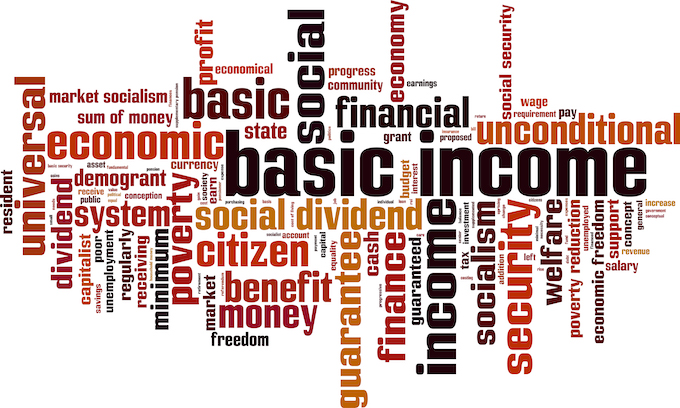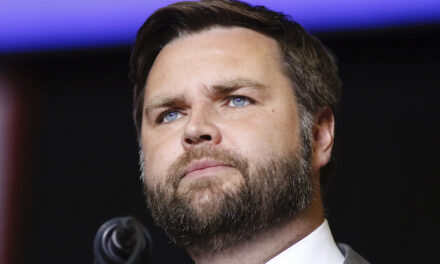When the economically struggling San Joaquin Valley city of Stockton in 2018 initiated a program to provide a monthly no-strings-attached stipend of $500 to a select group of residents, it was clear that the plan ‘s supporters hoped to prod other governments to adopt a similar program. Indeed, some Bay Area cities quickly followed suit.
Now the California Legislature passed — and the governor supports — a $35-million statewide “universal basic income” program that likely will provide around $1,000 a month primarily to young people who are transitioning out of the state’s foster-care system. The state program is the first of its kind in the nation — something that we expect to spread widely.
We tempered our criticism of the Stockton “SEED” plan (Stockton Economic Empowerment Demonstration) based on the realization that a private foundation provided the funding. Private organizations can dispense their own cash as they please, but we saw what was coming. The Legislature referred specifically to SEED in its analysis justifying Senate Bill 739.
These types of plans are now in vogue. The legislative staff report notes that, “guaranteed income projects have been found to have a significant increase in quality-of-life benefits.” Yes, people who receive extra income are able to afford a better lifestyle. We don’t need pilot programs to prove that point. Such programs have two key problems, though.
The first is financial. The goal here is to have taxpayers finance the payments. SB 739’s costs are a rounding error in a $263-billion budget, but the benefits target only a small group of Californians. In this case, the Legislature was wise to choose a sympathetic group. Foster care youth definitely need help as they leave this state-controlled system, which no doubt explains its bipartisan legislative support.
But basic income proponents typically want direct payments to become the norm. Even California’s budget can’t sustain that burden, whether they are targeted only to poor people or more broadly across the population, as some advocates want. The U.S. budget already exceeds $28 trillion in debt, so this is a non-starter at the federal level.
The second problem is philosophical. It’s wrong to condition an ever-expanding swath of Americans to look toward the government for their sustenance. Employers already struggle to find sufficient workers because of generous COVID-19-related stimulus checks.
Universal basic income programs — or more-targeted “guaranteed income” variants — discourage work and enterprise. They certainly provide immediate help — but dissuade people from getting the job skills that will improve their long-term economic prospects.
They also discourage the state and cities from focusing on the best income plan: a better business climate that provides myriad work opportunities. UBI also will create a permanent lobby for higher benefits, creating never-ending legislative battles over payment levels. The state plan funds localities with UBI programs, so it will encourage more cities to start them.
The push comes from progressives, but the Assembly report noted that free-market economist Milton Friedman supported something similar. Conservatives, however, viewed it as an alternative to the bureaucratic social-services system. SB 739 exempts these payments “from being considered for eligibility and benefit amount determination” for existing programs.
It’s fine for the Legislature to help foster-care youth, but it shouldn’t use that laudable effort to set the stage for a far-reaching, costly and counterproductive basic-income program.
___
(c)2021 The Orange County Register (Santa Ana, Calif.)
Visit The Orange County Register (Santa Ana, Calif.) at www.ocregister.com
Distributed by Tribune Content Agency, LLC.
—-
This content is published through a licensing agreement with Acquire Media using its NewsEdge technology.



















A guaranteed basic income to dependency / being enslaved by the communist government of California / Venezuela. Oh, isn’t communism beautiful, a beautiful fall into the abyss of evil!
YOU ARE permanent wards of the state.. THIS IS IMO what they are essentially making folks into.
Communism, socialism, welfare state…
Welcome to The People’s Řepublik of Kaly4ñya.
Everything’s free, until they run out of other (working) people’s money.
I thank my lucky stars every day I live in Florida. I’ve never been to Kaly4ñya, nor do I have any intention of doing so.
Good luck to them, ’cause they’re gonna need it.
WHEN Uncle federal govt, continually bails them OUT, what “luck” will they need?
Last time I was in Kalifornication was 1965. The family was at Disneyland the day of the Watts riot. I have no desire to ever visit Garden of Eden turned hell hole again; if The Big One earthquake causes it to fall into the Pacific: so what, I don’t care as it would be the overdue judgment of God on sins even worse than Sodom and Gomorrah.
I’d go and throw a big block party to celebrate, if that ever did occur
Not only do these systems run out of money, since no one bothers to work (i.e., earn taxable money), but the systems also run out of goods and services, since no one is working to produce them. This has always happened and always will happen.
How long before californication asks for a bailout from the government cause they are broke and cannot take care of themselves at all.
THEY ALREADY GOT two already, from both of those ‘covid relief bills’.
DEAQUI
** California was bailed out under the parrot, puppet president Joe Biden signing into law March 11 a $1.9 trillion COVID-19 relief bill.
COVID-19 relief bill only directed 9% of funds toward actual COVID-related things. 91% of the $1.9 trillion went to the Democrat Party’s Christmas list. Like bailing out California out of debt.
** And the Democrats got away with their Covid-19 relief Con. so they are trying it again with the the infrastructure Con/Deception.
Notice:
“universal basic income” program that likely will provide around $1,000 a month primarily to young Illegal immigrant people who are transitioning out of the state’s foster-care system.
In just fiscal year 2020, ICE used more than $3 billion in taxpayer dollars to fund the detention of nearly 170,000 immigrants, detaining each person for an average of three months, before relocating them to state’s foster-care system.
Just imagine, how many AMERICAN CITIZENS could have been helped out of poverty, or to get off the street, with that 3 billion!!!